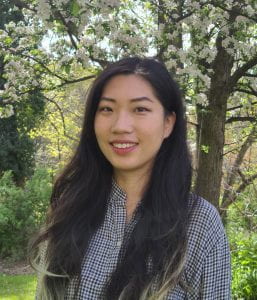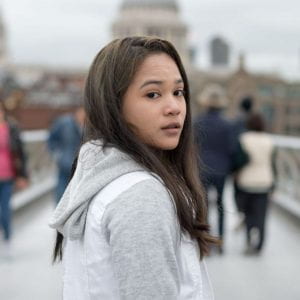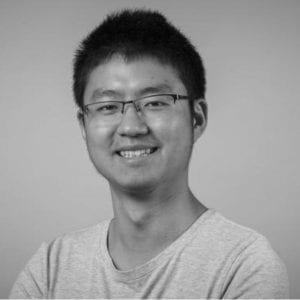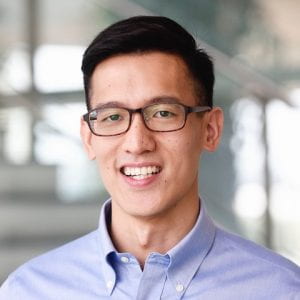Members
URBAN ECOLOGY LAB
Department of Architecture, College of Design and Engineering, National University of Singapore.


Lab Leader

Professor, Dr Tan Puay Yok
I am a horticulturist and plant physiologist by training, but as I began to be exposed to the practical challenges of managing nature in cities that are simultaneously social (i.e., pertaining to governance), and technical (i.e., pertaining to the biophysical sciences) while in public service, I gained a strong interest in using urban ecology as a framework and an approach to address some of the pressing issues that cities face. The paradigms of ecology in, ecology of, and ecology for cities serve as useful metaphors to frame studies and promote an action-oriented approach toward scientific research.
I am the Cluster Leader for the Landscape Studies group at the Department of Architecture of the College of Design and Engineering.
From Oct 2019, I am jointly appointed by the National Parks Board of Singapore and NUS, to be concurrently the Director of the Singapore Botanic Gardens and the Chief Science and Technology Officer of the National Parks Board.
I am the Co-Editor-in-Chief of Landscape and Urban Planning (https://www.journals.elsevier.com/landscape-and-urban-planning), Associate Editor for Journal of Urban Ecology (https://academic.oup.com/jue) and Editorial Board Member of Urban Sustainability (https://www.nature.com/npjurbansustain/about/editors).
Please see more information here: https://www.sde.nus.edu.sg/arch/staffs/tan-puay-yok-dr/
Email: puay.yok.tan@nus.edu.sg
Current Lab Members
Dengkai is a multidisciplinary researcher with expertise in both remote sensing science and ecology. She holds a Ph.D. degree in Bioscience Engineering from the University of Leuven. Throughout her Ph.D. research, Dengkai explored the responses of trees to urban environmental changes at the leaf level, the potential of airborne hyperspectral and LiDAR data in urban tree health and tree species identification. She also looked at the associations between exposure to trees and human health.
As one of the coordinators of the Future Cities Lab’s Comparative Ecology of Cities research module, Dengkai is continuing her work on advancing our understanding of the mechanisms between urban patterns (covering both the natural/semi-natural spaces and built components) and public health.
Email: dengkai.chi@sec.ethz.ch

Zhang Xudong (Harry) – Research Fellow
He currently serves as a Research Fellow in the lab. He completed his PhD in the Department of Architecture at NUS. His dissertation focused on assessing the impact of visual landscape quality assessed by image-based metrics on restorative potential and mental health. His expertise lies in the application of digital tools to investigate the health benefits and other human-centered ecosystem services within urban environments. He held a NUS Research Scholarship in Singapore, and completed his master’s degree at TU Delft, where he was awarded a Sino-Dutch Scholarship by the Ministry of Education, Culture, and Science of the Netherlands.
Research Interests: Digital Tools, Spatial Metrics, Urban Landscapes, Health and Well-being, Perception and Restorative Potential, Urban Ecosystem Services
Google Scholar: https://scholar.google.com/citations?user=WwVUQV8AAAAJ&hl=en&oi=sra
Email: xudong.zhang@u.nus.edu

Long Xinping Sherlyn – Research Associate
Sherlyn is a research associate at the Department of Architecture, National University of Singapore. She has experience in urban greenery as well as climate research. She holds a Master of Science (Building) degree from the National University of Singapore. Her research focuses on the development of workflow for the assessment of greenery placement and selection on building surfaces.
Email: longxps@nus.edu.sg

Qiu Yeshan – PhD Candidate
A current PhD candidate in the Department of Architecture, National University of Singapore. She completed her master’s degree in landscape architecture at shanghai Jiao Tong University. Her study focuses on how biodiversity and pattern of landscape distribution in cities promote health and well-being of the citizens, and the planning and design strategies.
Research Interests: Urban Ecosystem Services, Biodiversity
Email:Qiuyeshan@u.nus.edu
Zhou Zuyuan (Brynn) – PhD student
Brynn is a PhD student at the Department of Architecture, National University of Singapore. She mainly focuses on the possibility of using 3D metrics on landscape quality and investigates the effects of audio-visual interaction on soundscape and landscape perception. She completed her master’s degree in landscape architecture at the National University of Singapore (NUS). She is interested in emerging technologies such as Virtual Reality, Augmented Reality, and Point Clouds and their application in landscape architecture.
Research Interests: Acoustics, Design Visualisation and Auralisation, Virtual reality, Point Clouds, Panorama
Email:zuyuan.zhou@u.nus.edu
 Wang Jing – Research Associate
Wang Jing – Research Associate
Jing joined the module of Comparative Ecology of Cities as a researcher in 2023. In the module, she investigates urban forms in multiple layers (e.g. landscape, building, street) across dozens of cities globally, and studies the relationship between urban forms and the socio-economic performances of cities. She also contributes to the quantitative analysis of pattern-process-function loops in urban ecology systems.
Before starting this position, Jing worked on using machine learning (unsupervised learning, computer vision, and contrastive learning) for mining latent information in graphic urban morphology. Her research interests include spatial representation learning, GeoAI, urban economics, and urban ecosystems.
Email: wang.jing@sec.ethz.ch
 Chen Xinyu – Research Associate
Chen Xinyu – Research Associate
Xinyu is a research associate at the Department of Architecture, National University of Singapore. She is currently involved in the CoT Urban Ecosystem project, researching recreation services in Singapore. She holds a Master of Science degree in Applied Geographic Information Systems from the National University of Singapore, with a primary research interest in data science applications in urban scenarios. Before joining the Urban Ecology Lab, Xinyu worked as a research engineer at the School of Computing and Information Systems, Singapore Management University. For more details about her work, please visit: https://chenxy285.github.io/portfolio/
Lab Alumni
He was a research fellow in the Lab. He is a landscape architect and holds a PhD in Built Environment at The University of New South Wales, Sydney. His research focuses on the assessment of landscape visual quality. He is also interested and skilled in multi-disciplinary urban research, including urban climate mitigation, decision-making models, and the application of artificial intelligence to the urban environment.
Email:jindaqi@nus.edu.sg
Radha was a research assistant at the department of architecture, National University of Singapore. Her work emphasises urban landscape visual quality and the promotion of mental health. She is a landscape architect, passionate about understanding the socio-ecological relation between Nature and humans and providing healthier ecosystems. She completed her master’s degree in landscape architecture from the National University of Singapore and a bachelor’s in architecture from the Academy of Architecture, Mumbai, India.
Research Interests: Urban Landscape and mental health, Urban ecosystem services and Cultural Landscapes
Email: radha.w@nus.edu.sg
Xiao Ping was a Postdoctoral Research Fellow jointly appointed at the Department of Architecture and Department of Biological Sciences, National University of Singapore. He completed his PhD at the Future Cities Laboratory, Singapore-ETH Centre, and the Department of Architecture, National University of Singapore. His research and teaching relate to the social and ecological performance of urban greenery, and cover topics ranging from geospatial analysis to plant physiology. He is interested in open science and software, and the translation of research into operational workflows.
Research Interests: Geoinformatics, Social-ecological systems, Urban ecology, Reproducible research and Data visualisation.
Please see more information here: https://xp-song.github.io
Email: xp.song@u.nus.edu

Tung Yu-Hsin (Julie)
Julie is a PhD student from the Horticulture and Landscape Architecture Department, National Taiwan University. Her research uses big data and machine learning techniques to identify critical landscape features to neural and psychological health. Her study pursued three specific parts: identifying landscape features in various environments, investigating the health effects of neurological responses, and exploring correlations between the two, which provides the opportunities to look into the critical elements of the environment that help landscape designers establish a healthful landscape.
Email: julie010195@gmail.com

Zhang Yan
She is a current PhD candidate in Urban and Rural Planning, Harbin Institute of Technology, China(2019- ), Visiting student of Urban Ecology Lab, National University of Singapore (2022-2023). Her research focuses on how to establish landscape security patterns at the city level with coordinated ecosystem services demand and supply.
Research Interests: ecological restoration, urban ecology
Email: yan.zhang@u.nus.edu

Yujin Kim
Yujin Kim was a visiting Fox International Fellow from Yale University interested in the health, social, and environmental impacts of urban green spaces. Most recently, she was a fellow at Shift Health Accelerator, an NGO centered around fostering multi-sector collaborations to address health and racial equity. Previously, she has worked in environmental consulting and was a Peace Corps Volunteer. She holds a master’s degree from the Yale School of the Environment and a B.S. in environmental science from the University of Texas at Austin.
Email: yujin.kim@yale.edu

Abdul Rahim Hamid
I am a Registered Landscape Architect with the Australian Institute of Landscape Architecture (AILA), and an Accredited Landscape Architect with the Singapore Institute of Landscape Architects (SILA), having worked in the profession in Australia and Singapore for over six years. I remember my time with the Urban Greenery and Ecology Laboratory fondly since I did my Ph.D. Dissertation followed by a Research Fellow position there under the supervision of Associate Professor Tan Puay Yok on the topic of Urban Biodiversity Conservation an ecological network framework. It was a sharp learning curve for me having moved from professional practice, to teaching at the Singapore Polytechnic and then to research.
I am currently a Senior Lecturer at the Universiti Teknologi Malaysia with the Landscape Architecture Department, School of Built Environment and Surveying; as well as an Adjunct Senior Lecturer with the School of Design and Environment (SDE), National University of Singapore (NUS), leading the Environmental Planning module for the Master of Science (Environmental Management) course. In addition, I am a Sessional Lecturer with James Cook University Singapore teaching Introduction to Geographic Information Systems part-time. My training under Associate Professor Tan and Dr Malone-Lee Lai Choo, for whom I worked as a Graduate Student Researcher at the Centre for Sustainable Asian Cities (CSAC), SDE, NUS, has given me valuable knowledge in terms of how to do research as well as managing research work. I was involved in two key research under CSAC, firstly Benchmarking Sustainable Development using indicators and best practices across cities around the world, and secondly Urban Regeneration best practices in Asian cities.
I just completed contract research for the Institute of Landscape Architects Malaysia about key criteria for Green Certification that are relevant to landscape architecture practice in the country. I am also doing action research in pedagogy, having won the best paper award for research at the Singapore Polytechnic in 2009 about non-traditional methods in teaching such as cooperative learning, blended learning and problem-based learning. My research interests therefore encompass Landscape Planning, Landscape Ecology, Biodiversity Conservation, Urban Sustainability, and Teaching and Learning. I won the Esri Young Scholar Award for the innovative incorporation of GIS technology for my PhD research, and have published a book chapter edited by Associate Professor Tan Puay Yok and Professor Jim Chi Yung. My PhD Dissertation also garnered me an Associate Professional Membership with the Institution of Geospatial and Remote Sensing Malaysia (IGRSM).
Please see more information here: https://arah.edublogs.org/
LinkedIn: https://www.linkedin.com/in/abdul-rahim-hamid-7139096/
Email: arah.singa@gmail.com

Adelia Sukma
I participated in Biophilic Town Framework project and was responsible for the analysis of the priority assessment using Analytic Hierarchy Process (AHP) method. I was also in charge of developing the 3D for spatial typology of Singapore’s neighborhood landscape. Before I joined the team, I was appointed as studio manager of Urban Studio module for Msc. Integrated Sustainable Design Programme, National University of Singapore, where I received my master degree. My current research topic is on climate-sensitive urban design for high-density tropical cities. I conduct Computational Fluid Dynamics (CFD) simulations and assessment on microscale design strategies. I’m interested in understanding the relationship between urban morphology and microclimate, specifically on the impact of anthropogenic heat on the airflow and air temperature. Having an architect background, I’m actively participating on architectural design competitions and trainings. In the past years, I have received several awards and recognitions in both national and international level. In 2010, she was selected to join Tadao Ando Programme for Short Term Overseas Trainees and Youth Symposium in Osaka, Japan.
Research interest: Climate-sensitive urban design, Sustainable and livable design strategy for high-density cities and Urban wind environment.
Email: adelia.sukma@sec.ethz.ch
 Agnieszka A. Olszewska-Guizzo
Agnieszka A. Olszewska-Guizzo
I was a post-doctoral research fellow at the collaborative research project between NUS and N.Parks, titled “Effects of Landscapes on the Brain”. I’ve received her Ph.D. in Landscape Architecture and Urban Ecology from University of Porto, Portugal in 2016. And soon after started my first post-doctoral position at the “Biophilic Town Framework” project at NUS. I am interested in exploring the relationship between the exposure to the built environment and human mental health and well-being through the methods of neuroscience. In several experiments conducted, I’ve incorporated methods of brain imaging (EEG and fNIRS) to investigate the changes in brainwave oscillations in participants exposed to different landscapes. I have introduced and operationalized the Contemplative Landscape Model with a quantitative assessment scale to distinguish scenes that are the most beneficial for mental health.
Besides my research fellow work I am running my own non-profit NGO, NeuroLandscape, set to advance and disseminate knowledge in the area of evidence-based urban landscape design. I have also been part of several expert panels including EU and WHO funded “EKLIPSE” systematic review on “Types and characteristics of urban green & blue spaces having an impact on human mental health and well-being” and Horizon 2020 expert group on “Visionary and integrated solutions to improve well-being and health in cities”.
ORCID: orcid.org/0000-0002-5278-0374
Email: aga@nus.edu.sg

Chen Bingjing (Becky)
Ph.D. candidate in Landscape Architecture, Tsinghua University, China (2017-), Visiting student of Urban Ecology Lab, National University of Singapore, Singapore(2019-2020), Master of Landscape Architecture, Southeast University, China (2012-2015), Bachelor in Landscape Architecture, Beijing Forest University, China (2008-2012).
I have researched the impact of landscape quality on well-being in NUS during my one-year visiting period. Now I have come back to Tsinghua University, and continue doing relevant research in the field. Besides my research work, I’m actively participating in therapeutic landscape design and planting design. I’m the lead designer of several therapeutic gardens in China, like the Perception Garden in Beijing Botanical Garden. I have won many design awards, the Gold Prize of the China International Flower Border Contest in 2021, etc.
The current area of research: Visual Perception and Preference of Landscape Plants
Research Interests: Planting design, landscape quality and well-being, therapeutic landscape.
Email: beckychenwork@outlook.com

Zhang Jingyuan
She obtained her Ph.D. degree from SDE, NUS in 2018, and she joined the Natural Capital Singapore project from 2018 to 2019. After that, she started working as an Assistant Professor in the School of Architecture in Harbin Institute of Technology (Shenzhen) in China. Her Ph.D. study won ESRI Young Scholar Award in 2017.
Research Interests: Urban green spaces distribution and use behavior: Assessing the distribution of urban green spaces from the perspectives of accessibility, equity, etc.; Assessing the preferences and use behavior of people with different socio-economic attributes. Urban greenery perceptional studies: Exploring people’s perceptions of urban green spaces using social sensing techniques, including wearable sensors, green view index, etc.
Email: jingyuanz@u.nus.edu

Kathrin Schmiele
My research focused on the assessment of whole tree transpiration to gain more understanding about its role and dependence to support target species selection for an improved cooling of the tropical environment of Singapore. As a member of the research team I conducted replicated field tests to measure tree transpiration of selected species originated from seasonally dry deciduous and a seasonal evergreen tropical forests. Measurement of sap flow and stomatal conductance under respective atmospheric conditions and controlled soil moisture settings gave insight into specific plant physiological characteristics, species-related interaction with the environment, water use efficiency and related cooling ability. As the owner of “touchgreen” (www.touch-green.com), I apply my ecological knowledge gained from this research in my current professional activities and offer outdoor education programs to schools and kindergartens and all parts of the community. My expertise in children-centered outdoor design and consultancy focusses on the creation of green and biodiversity-rich school grounds promoting children’s needs to enrich their play- and learning experience. In my projects and workshops, I implement teamwork, participation from planning to implementation and hands-on experience for children.
Email: ks@touch-green.com

Zhang Liqing
Ph.D. in Landscape Architecture, National University of Singapore, Singapore (2019), Master in Landscape Ecology, Peking University, China (2014), Bachelor in Landscape Architecture, China Agricultural University, China (2011).
Previous and current research work: When I was at Urban Ecology Lab, my work focused on the relationships between urban green spaces and self-reported health in Singapore at the population level. Currently, my research work continues to investigate the role of urban greenery in promoting public health.
Please see more information : https://www.researchgate.net/profile/Liqing-Zhang-5
Affiliation: Department of Landscape Architecture, School of Design, Shanghai Jiao Tong University.
Research Interests: Nature and health, healthy landscape, human and nature interactions.
Email: liqingzhang@u.nus.edu

Mahyar Masoudi
Mahyar is an urban ecologist and geographer who is generally interested in studying the relationship between the spatial and temporal patterns of urban ecosystems and ecological processes and functions therein towards generating actionable knowledge that can be used by urban practitioners and policy makers to create cities that are liveable, resilient and sustainable. His research seeks to understand ways to optimize the spatial structure of cities in order to induce desired ecological and environmental outcomes. In doing so, he also wears an environmental justice lens to ensure that urban residents of varying backgrounds are equitably benefiting from environmental amenities. Mahyar’s PhD dissertation was focused on the relationship between spatial pattern of urban green spaces and land surface temperature, comparing this relationship in Singapore over time and among 4 major Asian cities of Singapore, Hong Kong, Jakarta and Kuala Lumpur. How urban planning through land use decisions affects the relationship between spatial pattern and cooling effect of urban green spaces was also studied in his doctoral dissertation. Mahyar largely utilizes remote sensing and geospatial technologies in his research projects. Please see more information : https://mahyarmasoudi.wixsite.com/site
Email: mahyar@u.nus.edu

Nur Atiqah
I obtained MSc in Geospatial Science from Royal Melbourne Institute of Technology (RMIT), Australia. I’m a Geospatial Analyst and I am passionate about Urban Greenery, Urban Climate, Issues on Climate Change and Sustainability in general. My past research work focuses on time-series analysis on vegetation cover, and the relationship of greenery with socio-economic changes. I work as a researcher in the lab and also in Natural Capital Singapore (NCS), and during my time here, I was heavily involved in Urban air quality studies, in relation to urban greenspaces.
Email: n.attiqah@gmail.com

Rosita Samsudin
I am an architect by training and have been practicing in Singapore and Indonesia. I recently completed my doctoral study at the Dept. of Architecture, NUS under the supervision of Assoc. Prof. Tan Puay Yok (Dept. of Architecture, NUS) and Assoc. Prof. Vincent Chua (Dept. of Sociology, NUS). I also hold a Master in Architecture from Tsinghua University (P.R. China), MSc. In Building Science from NUS, Bachelor in Architecture Engineering from Parahyangan Catholic University (Indonesia).
My research centers around the relationship between nature, people, and well-being in urban contexts. As cities continue to urbanize and densify, there is also concern that densification may lead to social withdrawal and the declining of social capital, an aspect of human well-being. Nature in urban areas can help to counterbalance the negative impacts of densification on urban social lives by providing the platform for social interactions and social capital formation while still performing multiple ecological functions. My dissertation on Singapore’s public housing estates reveals that people’s perceptions of green space are significant mediators to social capital formation rather than provision per se and spatial organization or spatial design of green space may contribute to differences in social capital. Currently, I am collaborating with colleagues at the Tokyo College (University of Tokyo) to further my research by investigating the relationship between nature and social capital in the context of Japanese cities as well as by expanding the research to understand the relationship between nature, social capital and health in urban contexts.
Research Interests: Urban ecology and social dimension of urban landscapes, communal housing in high-density cities, sustainable architecture and urban development, evidence-based urban planning and practices.
Affiliation: Postdoctoral Fellow, Tokyo College, University of Tokyo and Adjunct Lecturer, Singapore University of Social Sciences.
ORCID: https://orcid.org/0000-0003-0917-3664
Email: rosita.samsudin@u.nus.edu

Sylvia Agustina
Prior to joining the lab, Sylvia was trained and has worked as a researcher and educator in Asia, America and Europe. She studied Architecture at Gadjah Mada University, Yogyakarta and earned her Master degree in Urban Planning from University of Washington, Seattle with a Fulbright scholarship. Upon returning to Indonesia she was involved in the post 2004 tsunami rehabilitation efforts and led the UN Women Aceh Tsunami Project between 2005-2006. She then co-founded Aceh Greenmap Community to promote urban sustainability.
Her doctoral research was about the role of urban nature in fostering environmentally responsible behavior. After finishing her Ph.D. at NUS in 2020, Sylvia resumes her teaching and community work in Indonesia. She is now based at The Department of Architecture and Planning in University of Syiah Kuala-Banda Aceh. Her research interests include urban environment and behavior, post disaster urban recovery, cultural and natural urban heritage, GIS and spatial analysis, and community outreach for urban sustainability. She can be contacted at :
https://scholar.google.com/citations?user=rVFmVhIAAAAJ&hl=id
http://fsd.unsyiah.ac.id/sylvia/
Email: sylvia_agustina@unsyiah.ac.id
Teo Shuan Hao
I am a horticulturist by training, with broad interests in plant ecophysiology, particularly in the context of urban greening. My current research focuses on understanding the differences among urban tree species in rendering the ecosystem service of cooling via transpiration, and how plant functional traits can be used to correlate and predict transpiration cooling of trees in the urban environment. I obtained a Master of Science in Horticultural Sciences and a Bachelor of Science in Horticultural Sciences, both from the University of Florida.
LinkedIn: https://www.linkedin.com/in/shuan-hao-teo/
Email: teo.shuan.hao@gmail.com
Last Updated: 5 Mar 2024




